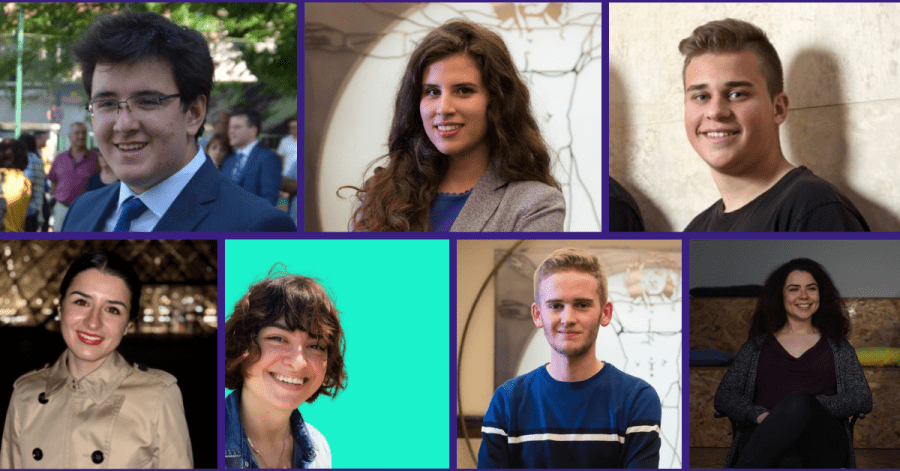What vision for the future drives Bulgarian Gen Z entrepreneurs to create, develop, and scale their ventures? Firm sustainability advocates, societal changemakers, and team players, young Bulgarian innovators have a handful of ideas about how to tackle important topics, such as education, and eco-innovation.
“I want for the other generations to be able to see young people as capable and driven, and for the companies to trust them more and to give them more opportunities and practical knowledge through paid internships and junior positions,” Tsvetomira Gyaurova, co-founder of the first co-studying space in Bulgaria, and one of the HR startups that aim to find jobs for young people shares.
In this series, The Recursive meets with Bulgarian Gen Z innovators, showcasing the stories and motivation of young scientists and engineers, business developers, and social entrepreneurs.
The Gen Z Entrepreneurs of Bulgaria
EduBots
EduBots is a startup that creates educational kits for kids to learn robotics. The idea for the company arose in 2020 when the team of EduBots met and developed their project to become winners of Teenovator. This is a Bulgarian program that connects 10th and 11th graders and mentors from the business and the startup ecosystem to enable the students to develop and scale their business ideas.
The five founders of EduBots were the youngest participants in Innovation Starter’s acceleration program – Innovation Academy. Rangel Plachkov, Russie Shishmanov, Petko Mikov, Dimitar Serafimov, and Kaloyan Blagoev developed their first kit – Tripio – with everyday electrical appliances and components that are widely used in practice. Children have access to online lessons that explain step-by-step how Tripio is built. After they are ready with building the robot, kids can control it through the EduBots mobile app.
What’s the future you want to create through your venture?
Rangel Plachkov: Edubots started off with the mission to help anyone build their first robot. This is still our primary goal. Nowadays, many people think that assembling robots and programming them is too complicated. As time passed, we expanded our reach, staying amazed by the abilities and enthusiasm of the youngest engineers that use our products. I am beyond grateful that I am able to ignite the engineering spark in children and adults by introducing them to the world of robotics. Our whole team is passionate about robotics and wants to inspire young innovators for many more years.
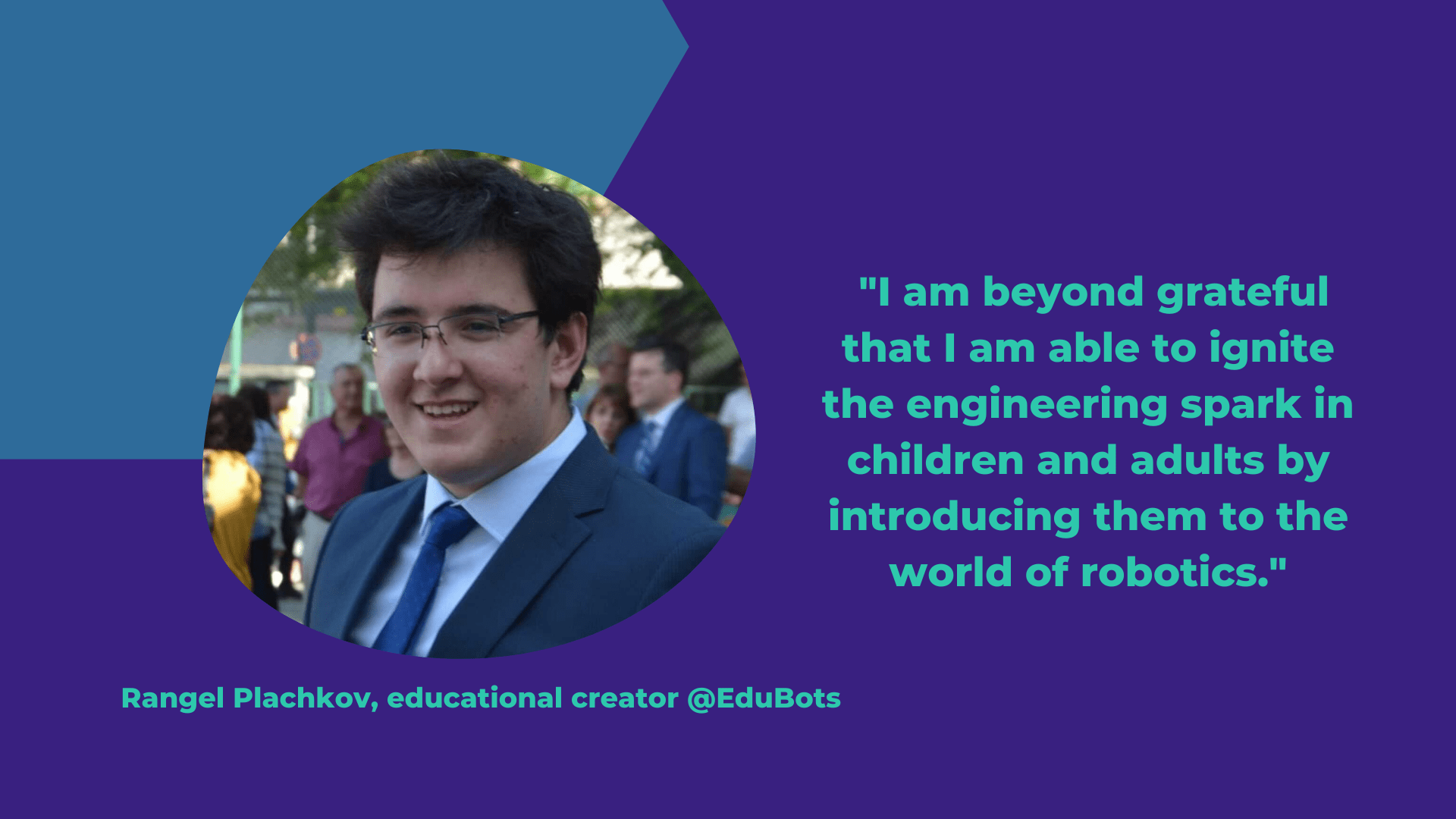
What is the most valuable advice you would give to Gen Z entrepreneurs?
Rangel Plachkov, educational creator: Do not be afraid to act and do not spend time waiting or hesitating.
Rusi Shishmanov, designer and engineer: Not everything is what it seems. Some things can look impossible and very time-consuming, but in reality, they turn out to be fairly easy, while other things that seem pretty straightforward can be very tricky.
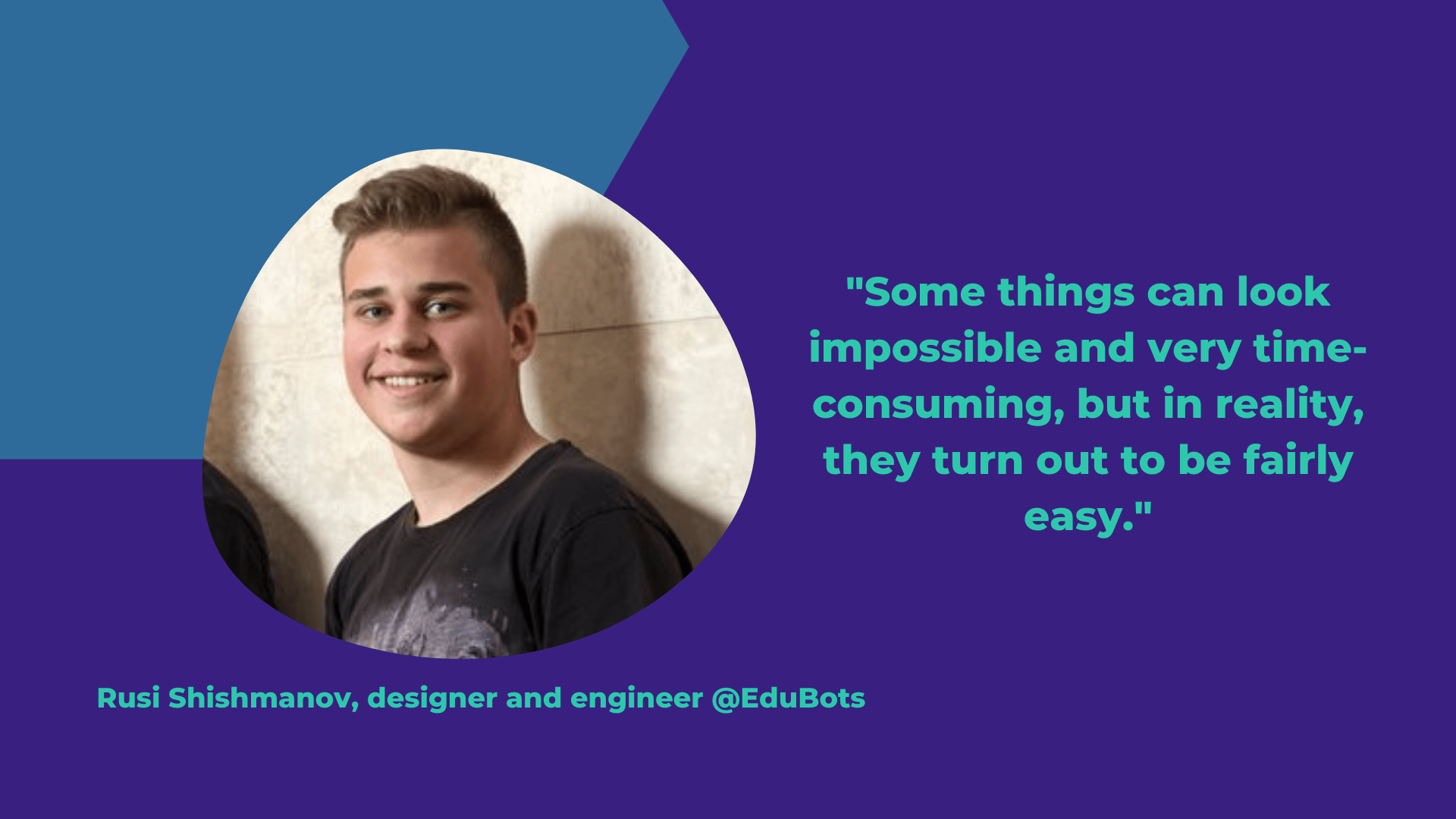
StudyHub Bulgaria and CareerHub
Tsvetomira Gyaurova is a college student at Sofia University “St. Kliment Ohridsky”, where she majors in “Business Administration and Management”. She is also an IT Recruiter at Matrix Eastern Europe, and a social entrepreneur with two fulfilled projects, aimed at the Bulgarian youth, behind her back.
StudyHub was the first project that Gyaurova and her team created. StudyHub is a 24-hour library and a co-studying space, located in Students’ town, a campus area for most universities in Sofia. The space is open to students from any university and has card access and a subscription fee, varying from a day to a week, a month, or a semester. The organizers also host various professional events, such as meetings with professionals from different fields, lectures, and seminars. Entertainment events, including board game nights and short movie nights, are also on the list.
The 22-year old has one more entrepreneurial project behind her back – in 2020, she co-created CareerHub – a platform for job searching for people with no more than 3 years of experience. The platform connects companies from the Bulgarian tech space with young and prospective cadres who are motivated to start their career.
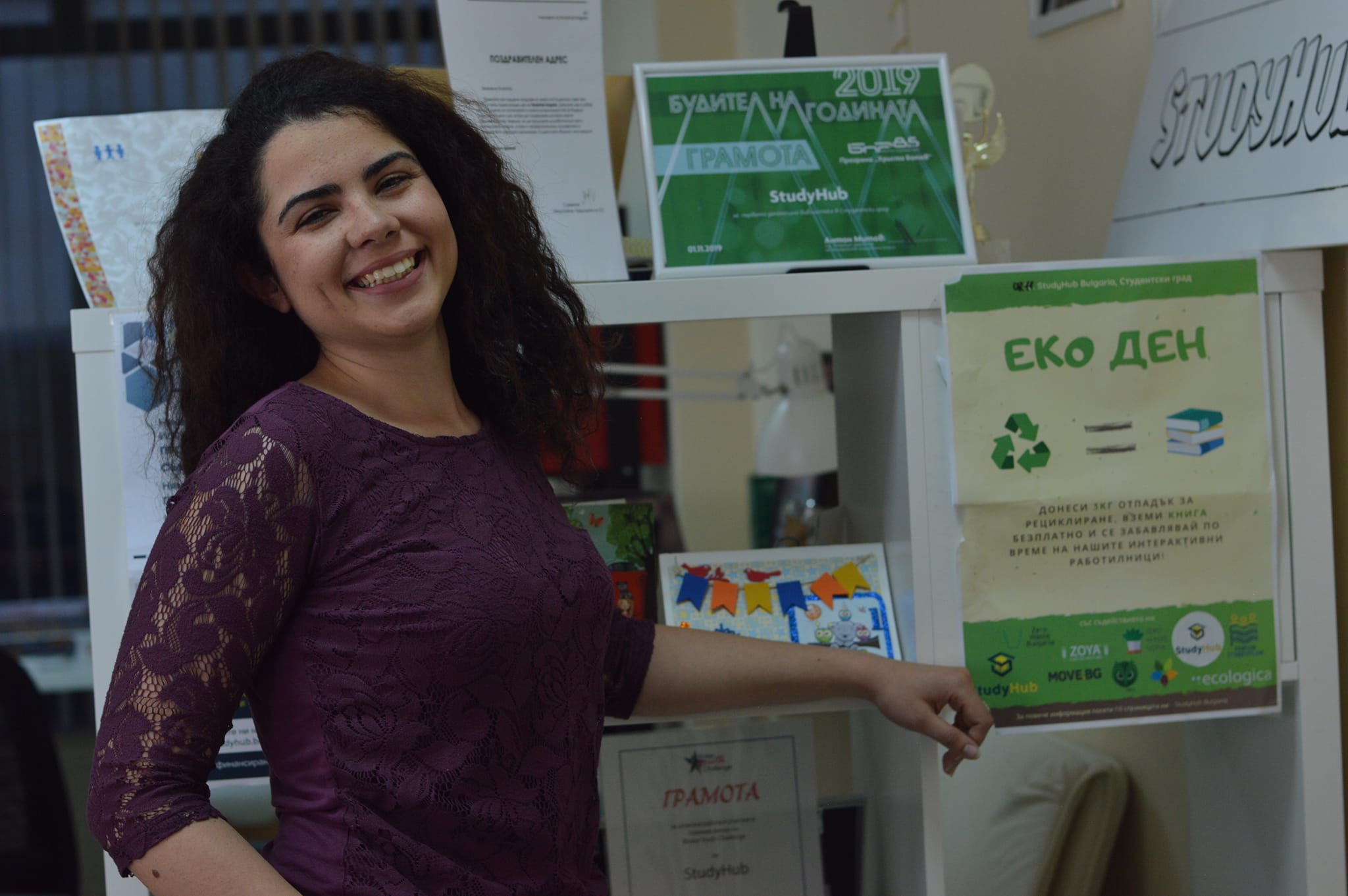
Tsvetomira Gyaurova, ©Tsvetomira Gyaurova
What’s the future you want to create through your venture?
Tsvetomira Gyaurova: Both of our ventures are social and are created to help university students in one way or another. I believe that if united, young people are able to make changes they are not aware of. Through StudyHub – the co-studying space and our projects in Student’s town, we are making Studentski grad a better place to live and study. We know that young people are motivated, ambitious, and have innovative thinking. And I believe that when they start their career path, they could be beneficial for the companies they work for.
That’s the reason we created CareerHub. Through it, young people have the opportunity to show employers that they have abilities, even if they don’t have experience.
Finally, I would say that mostly I want for the other generations to be able to see young people as capable and driven, and for the companies to trust them more and to give them more opportunities and practical knowledge through paid internships and junior positions.
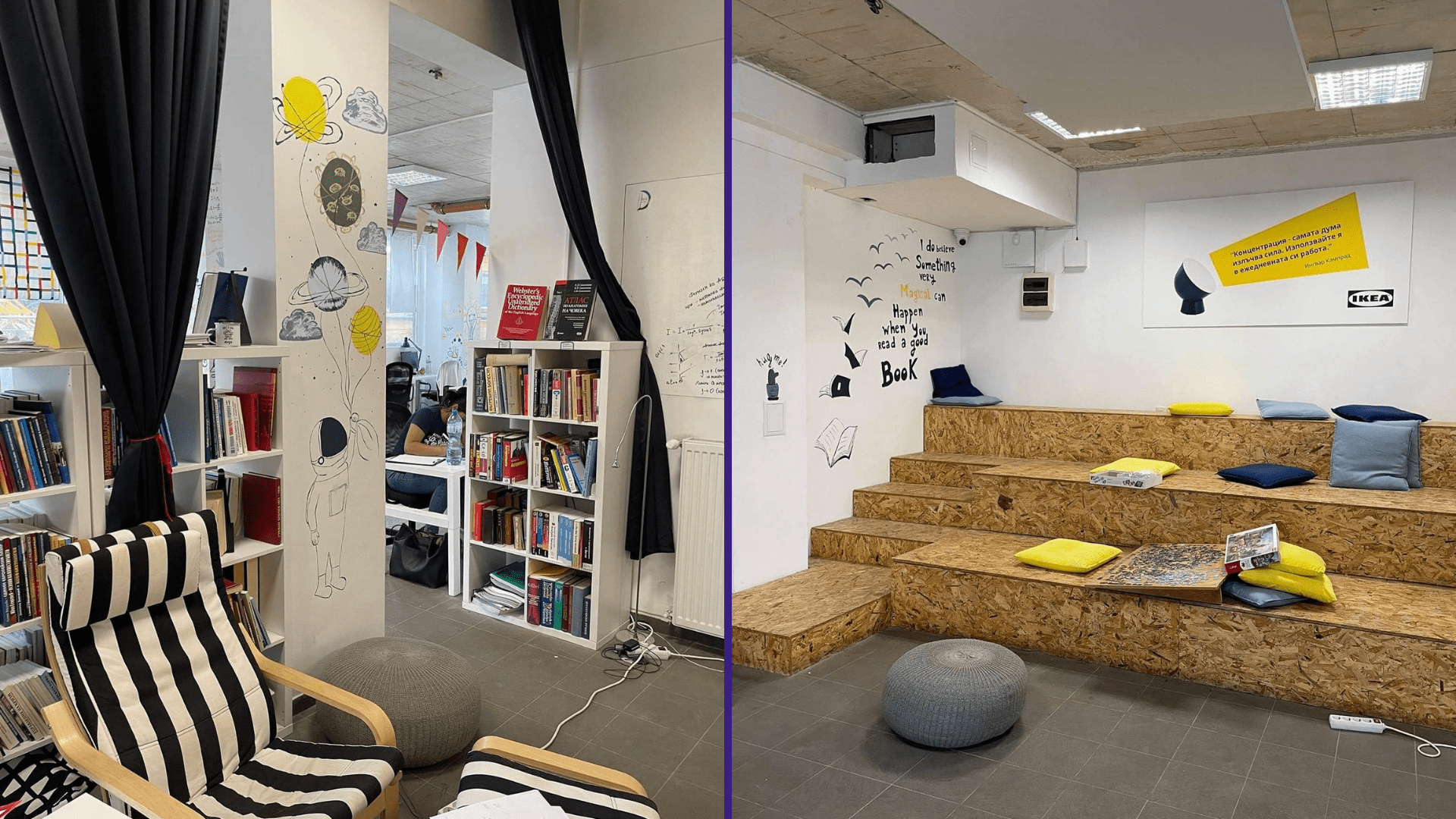
Inside StudyHub, ©StudyHub Bulgaria
What is the most valuable lesson you learned from a mentor of yours?
Maybe the most valuable lesson I learned is that if I don‘t know something, I should ask. It is not shameful, it actually shows people that you want to learn and be better at what you do. There are many professionals, who are willing to help you, and most importantly, they will give you other perspectives to your problem. And there may be situations that you have never thought of before talking with someone who has experience.
Driving Force
“Driving Force” is a youth entrepreneurship project, developed during the third module of WWF’s Panda Labs – “The future of mobility”. The team behind “Driving Force” is developing an application for transport alternatives that provides information on the carbon footprint and green rating of consumers. “We applied because we care – we care for the environment, we care for what we leave behind, we care for the choices we make as people,” Pavlina Naydenova, studentpreneur and part of the team shares. The young entrepreneur explained that the main motivation for “Driving Force” to develop the project is fighting against the “culture of glorifying “the personal car” that is typical for Bulgaria. “We hope to slowly change the trend by showing people the ease with which they can replace their car with public transport and other green alternatives,” Pavlina added.
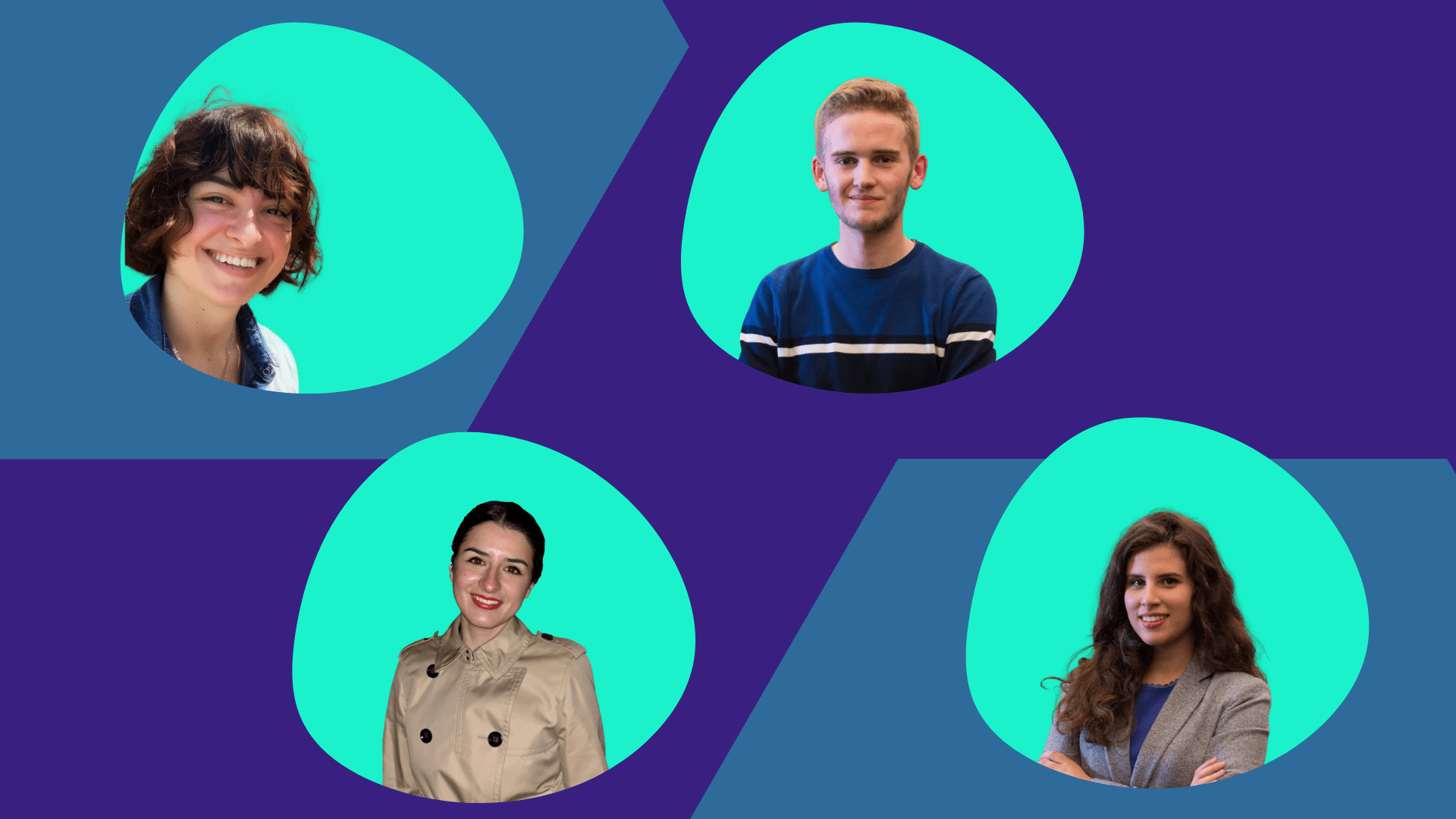
The team, from top left to bottom right: Mina Popova, Hugo Saint-James, Pavlina Naydenova, Theodora Delcheva, ©”Driving Force”
What’s the future you want to create through your venture?
Pavlina Naydenova: It is our belief that no matter how small the contribution may seem, every effort makes a difference towards our common goal of preserving our nature and our planet. We want to contribute to Bulgaria’s transition to green mobility by providing an easy-to-use platform combining various green transportation methods. By stimulating a better-balanced use of transportation methods – traffic jams will decrease, the air will be less polluted and new opportunities will emerge for green enterprises, making the country as a whole more enjoyable. We believe that people’s mindset of ‘must have a personal car’ can be changed by demonstrating the advantages of eco-friendly vehicles. In addition, being able to visualize our CO2 impact, be it positive or negative, is critical to proving that every one of us can help tackle the environmental crisis if we choose a more sustainable way of life.
We believe that nowadays young entrepreneurs should focus on the impact of their actions and strive to contribute to a greater good in the process of developing their ideas. Personal growth and profit go hand in hand with a better and greener world.

